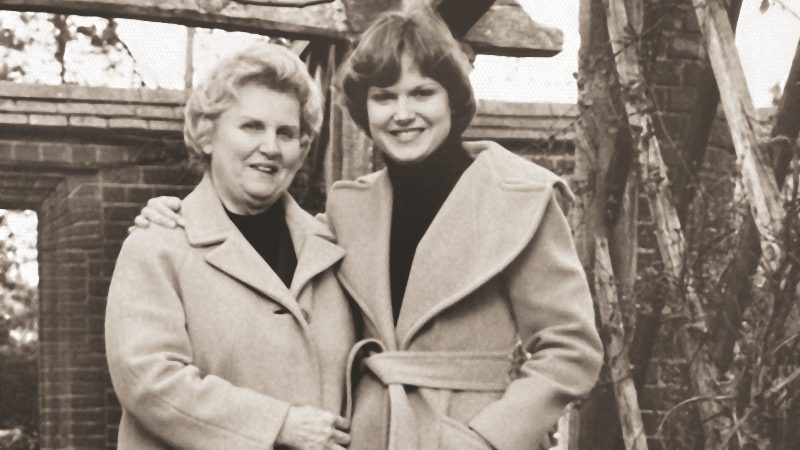When a friend or family member has cancer, you may feel helpless. Knowing what to say or do is hard, but when someone with cancer receives support from their loved ones it helps their physical and emotional well-being. Staying connected during this time is an important part of their recovery.
Studies show active support from friends and family members makes a real difference for people with cancer. It helps them adjust to changes in their lives and have a more positive outlook.
Here are seven tips for helping your loved one on a cancer journey.
Call or write. This is especially important for friends and relatives who don’t live nearby. A simple call or text can remind your loved one that they aren’t alone. Send brief notes or texts or make short calls. Share silly cards, photos, kids’ drawings, or anything that might brighten your loved one’s day. Ask questions and return messages right away.
Be understanding. Listen to your loved one and provide emotional support through your presence. Be flexible and understand that sometimes your loved one’s need for independence can impact their ability to accept help when it’s offered.
Give useful presents. An occasional gift can be a welcome distraction from everything your loved one is dealing with. Choose small, practical things that are useful during treatment, such as pajamas, stamped postcards, or a heating pad. Don’t overlook items that will bring joy—a funny movie, silly socks, or favorite foods can be very welcome too.
Help them feel good. Cancer patients often feel self-conscious about the physical changes caused by treatment. Encourage your loved one to explore solutions for coping, but don’t insist that they always stay chipper. Cancer patients should be encouraged to feel all of their feelings.
Respect their decisions. Cancer treatment is full of choices. Remember that the person with cancer makes the decisions. This includes deciding how friends and family can help. Keep in mind that advice and comparisons may not be helpful. Many variables impact recommended treatment. Comparisons may only serve to frighten and intimidate a new cancer patient.
Be present for medical matters. Volunteer to take your loved one to medical appointments. Having someone else in the room to take notes can be valuable. It might also be useful for someone else to keep a calendar of appointments. Ask your loved one how you can make their life easier. It is encouraging to the patient when their support person shows interest in their cancer. Even when you don’t know what to say, you can show supportive interest.
Take care of yourself. This is especially important if you’re the spouse or primary caregiver. No matter how much you love them, being the main pillar of support for someone undergoing cancer treatment can be emotionally taxing. Plan a few moments each day to do something for yourself. It might be as simple as taking a walk around the block. Joining a support group or seeing a professional counselor may be invaluable for maintaining your mental health during this time.
Remember, no one expects you to be a cancer expert. Most of all, your loved one just needs you to be there. That might mean offering a listening ear or honoring their treatment decisions. Ask them, “How can I be there for you?” Supporting a loved one who has cancer may include simply being available for them in their own specified way.
____________________
By Kim Strobel
Apoyo a un ser querido con cáncer
Cuando un amigo o familiar tiene cáncer, uno puede sentirse impotente. Es difícil saber qué decir o hacer, pero cuando alguien con cáncer recibe apoyo de sus seres queridos, ayuda a su bienestar físico y emocional. Mantenerse conectado durante ese tiempo es una parte importante de su recuperación.
Los estudios demuestran que el apoyo activo de amigos y familiares produce un impacto real para las personas con cáncer. Les ayuda a adaptarse a los cambios en sus vidas y tener una perspectiva más positiva.
Estos son siete consejos para ayudar a un ser querido en un batalla con el cáncer.
Llame o escriba. Eso es especialmente importante para amigos y familiares que no viven cerca. Una simple llamada o mensaje de texto puede recordarle a su ser querido que no está solo. Envíe notas breves o textos o haga llamadas cortas. Comparta tarjetas cómicas, fotos, dibujos de niños o cualquier cosa que pueda alegrar el día de su ser querido. Haga preguntas y conteste mensajes de inmediato.
Sea comprensivo. Escuche a su ser querido y brinde apoyo emocional a través de su presencia. Sea flexible y comprenda que a veces la necesidad de independencia de su ser querido puede afectar su capacidad para aceptar ayuda cuando se le ofrece.
De regalos útiles. Un regalo ocasional puede ser una distracción bienvenida entre todo lo que su ser querido está lidiando. Elija cosas pequeñas y prácticas que sean útiles durante el tratamiento como pijamas, postales estampadas o una almohadilla térmica. No pase por alto los artículos que producen alegría: una película divertida, calcetines bobos o comidas favoritas también pueden ser muy bienvenidas.
Ayúdele a sentirse bien. Los pacientes con cáncer a menudo se sienten cohibidos por los cambios físicos causados por el tratamiento. Anime a su ser querido a explorar soluciones para sobrellevar la situación, pero no insista en que siempre se mantenga ágil. Se debe alentar al paciente con cáncer a vivir todos sus sentimientos.
Respete sus decisiones. El tratamiento del cáncer está lleno de opciones. Recuerde que la persona con cáncer toma las decisiones. Eso incluye decidir cómo los amigos y la familia pueden ayudar. Tenga en cuenta que los consejos y las comparaciones pueden no ser útiles. Muchas variables afectan el tratamiento recomendado. Las comparaciones solo pueden servir para asustar e intimidar a un nuevo paciente con cáncer.
Esté presente para asuntos médicos. Ofrézcase como voluntario para llevar a su ser querido a citas médicas. Tener a alguien más en la habitación para tomar notas puede ser valioso. También podría ser útil que otra persona mantenga un calendario de citas. Pregúntele a su ser querido cómo puede hacer su vida más fácil. Es alentador para el paciente cuando su persona de apoyo muestra interés en su condición. Incluso cuando no sabe qué decir, puede mostrar interés al apoyar.
Cuídese. Eso es especialmente importante si usted es el cónyuge o el cuidador principal. No importa cuánto lo ame, ser el principal pilar de apoyo para alguien que se somete a un tratamiento contra el cáncer puede ser emocionalmente agotador. Planifique unos momentos cada día para hacer algo por sí mismo. Puede ser tan simple como dar un paseo alrededor de la cuadra. Unirse a un grupo de apoyo o ver a un consejero profesional puede ser invaluable para mantener su salud mental durante este tiempo.
Recuerde, nadie espera que usted sea un experto en cáncer. Sobre todo, su ser querido solo necesita que usted esté presente. Eso pudiese significar ofrecer un oído atento u honrar sus decisiones de tratamiento. Pregúntele: «¿Qué puedo hacer por ti?» Apoyar a un ser querido que tiene cáncer puede incluir simplemente estar disponible como lo desee.
____________________
Por Kim Strobel






